National Urban Alliance Board of Directors
The NUA Board of Directors oversees policies and helps staff advance the organization’s mission, supports improved collective decisions, provides governance and guides actions and behaviors. Fundraising is an important responsibility, as is fiduciary oversight of programs supported by the president. Strategic planning is an additional responsibility. The board meets four times per year in face-to-face sessions as well as by conference call. The chairs are in touch with the president frequently throughout the year. The president is the liaison between the board and the staff.
 Peter W. Cookson, Jr., Ph.D. co-leads LPI’s Equitable Resources and Access team and provides leadership for several equity initiatives. In addition to teaching sociology at Georgetown University, he co-leads the American Voices Project, a joint research project of Stanford University, Princeton University, and the American Institutes for Research. Cookson began his career as a case worker in New York City and as a teacher in rural Massachusetts. Most recently, he was Managing Director of the think tank Education Sector and founded The Equity Project at the American Institutes for Research. He is the author of 16 books and numerous articles on education and inequality, social stratification, school choice, and 21st century education.
Peter W. Cookson, Jr., Ph.D. co-leads LPI’s Equitable Resources and Access team and provides leadership for several equity initiatives. In addition to teaching sociology at Georgetown University, he co-leads the American Voices Project, a joint research project of Stanford University, Princeton University, and the American Institutes for Research. Cookson began his career as a case worker in New York City and as a teacher in rural Massachusetts. Most recently, he was Managing Director of the think tank Education Sector and founded The Equity Project at the American Institutes for Research. He is the author of 16 books and numerous articles on education and inequality, social stratification, school choice, and 21st century education.
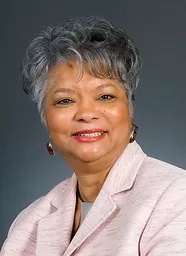 Diana Daniels, M.S. was the Executive Director of the National Council on Educating Black Children (NCEBC) and Executive Producer for NCEBC Talk Radio. Currently Ms. Daniels is the Executive Director, Indiana Council on Educating Students of Color. Ms. Daniels career includes as a teacher, central office administrator, consultant, college professor, entrepreneur, historian and community activist. She has worked more than 39 years in public education. While working with the Indianapolis Public Schools, she supervised and managed one of the country’s largest staff development projects for literacy with the National Urban Alliance.
Diana Daniels, M.S. was the Executive Director of the National Council on Educating Black Children (NCEBC) and Executive Producer for NCEBC Talk Radio. Currently Ms. Daniels is the Executive Director, Indiana Council on Educating Students of Color. Ms. Daniels career includes as a teacher, central office administrator, consultant, college professor, entrepreneur, historian and community activist. She has worked more than 39 years in public education. While working with the Indianapolis Public Schools, she supervised and managed one of the country’s largest staff development projects for literacy with the National Urban Alliance.
Ms. Daniels has delivered and participated in the staff development training of school boards, district leadership teams, and school teams. Mrs. Daniels compassion for educating African American children, and her community involvement is reflective in her membership in many organizations, including the National Alliance of Black School Educators, NAACP, Delta Sigma Theta Sorority, She has a passion for educating Black Boys, and urgently wants to change the conditions under which a high percentage of them are currently being educated.
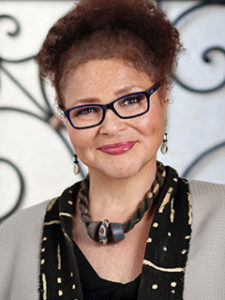 Lisa D. Delpit, Ed.D. is an American educationalist, researcher, and author. She is the former executive director and Eminent Scholar at the Center for Urban Educational Excellence at Florida International University in Miami, Florida, Benjamin E. Mays Chair of Urban Educational Leadership at Georgia State University, and the first Felton G. Clark Distinguished Professor of Education at Southern University and A&M College in Baton Rouge, Louisiana. She earned the MacArthur “Genius” Fellowship for her research on school-community relations and cross-cultural communication.
Lisa D. Delpit, Ed.D. is an American educationalist, researcher, and author. She is the former executive director and Eminent Scholar at the Center for Urban Educational Excellence at Florida International University in Miami, Florida, Benjamin E. Mays Chair of Urban Educational Leadership at Georgia State University, and the first Felton G. Clark Distinguished Professor of Education at Southern University and A&M College in Baton Rouge, Louisiana. She earned the MacArthur “Genius” Fellowship for her research on school-community relations and cross-cultural communication.
Delpit’s research has been on elementary education with a focus on language and literacy development. She has researched issues relating to race and access granted to minority groups in education. She is founder of the National Coalition for Quality Education in New Orleans, and co-sponsor and developer of the Conference on Education for Liberation at Georgia State University.
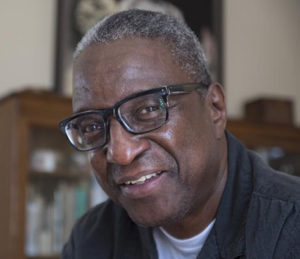 Herman Milligan, Jr., Ph.D is currently a Managing Partner with The Fulton Group, LLC, an independent consultant firm specializing in marketing research, competitive intelligence, non-profit organizational development, and culturally-specific initiatives. He has over twenty-five years of experience working in the financial services industry. He retired in 2010 as a Vice-President of Marketing Research/Competitive Intelligence within the Enterprise Marketing/Marketing Insights and Measurement division for Wells Fargo and Company. He received his Ph.D. in Sociology from the University of Minnesota-Twin Cities and his B.A. in Sociology from the University of Wisconsin-Madison.
Herman Milligan, Jr., Ph.D is currently a Managing Partner with The Fulton Group, LLC, an independent consultant firm specializing in marketing research, competitive intelligence, non-profit organizational development, and culturally-specific initiatives. He has over twenty-five years of experience working in the financial services industry. He retired in 2010 as a Vice-President of Marketing Research/Competitive Intelligence within the Enterprise Marketing/Marketing Insights and Measurement division for Wells Fargo and Company. He received his Ph.D. in Sociology from the University of Minnesota-Twin Cities and his B.A. in Sociology from the University of Wisconsin-Madison.
As a photographer and curator, he was a Ford Foundation Fellow in Music at the Center For Contemporary Music at Mills College (Oakland, CA) and performed with the Cecil Taylor Black Music Ensemble at the University of Wisconsin-Madison in 1971 (Tenor Saxophone) and also served as a music reviewer for the schools’ newspaper, the Daily Cardinal. As a photographer, he has participated in and organized several exhibitions and taught Visual Sociology at Macalester College (St. Paul, MN). Herman has also served as a panelist for the National Endowment for the Arts, Minnesota State Arts Board, Arts Midwest, and CEC ArtsLink. He serves on the board of directors for arts organizations based in the Twin Cities, New York City, Boston, Pittsburgh, and San Francisco.
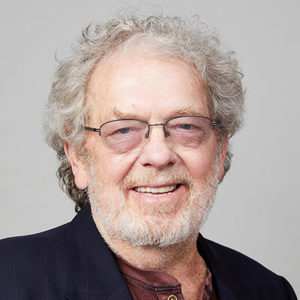 P. David Pearson, Ph.D. is an emeritus faculty member in the Graduate School of Education at the University of California, Berkeley, where he served as Dean from 2001-2010. His current research focuses on literacy, history, evaluation, and policy. He also holds an appointment as a Professor of the Graduate School and is the Evelyn Lois Corey Emeritus Chair in Instructional Science.
P. David Pearson, Ph.D. is an emeritus faculty member in the Graduate School of Education at the University of California, Berkeley, where he served as Dean from 2001-2010. His current research focuses on literacy, history, evaluation, and policy. He also holds an appointment as a Professor of the Graduate School and is the Evelyn Lois Corey Emeritus Chair in Instructional Science.
Prior to coming to Berkeley in 2001, he served as the John A. Hannah Distinguished Professor of Education in the College of Education at Michigan State and as Co-Director of the Center for the Improvement of Early Reading Achievement. Even earlier, he was Dean of the College of Education, Co-Director of the Center for the Study of Reading, and Professor of Curriculum and Instruction at the University of Illinois. His initial professorial appointment was at the University of Minnesota in Minneapolis from 1969-1978.
He has been active in professional organizations, serving the International Reading Association (IRA) and the National Council of Teachers of English (NCTE) in many capacities (including the IRA Board of Directors), both the National Reading Conference (NRC) and The National Conference of Research in English as President, and the American Association of Colleges of Teacher Education as a member of the Board. He currently serves as the Chair of IRA’s Literacy Research Panel.
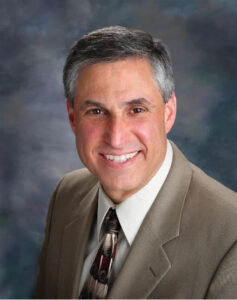 Aldo Sicoli, Ed.D. is a retired educator who has a passion for equity and social justice. He has been a teacher, an athletic coach and an administrator. After serving as an assistant principal, he was a middle school and high principal, including at two high schools which had the highest student standardized test scores in the two midwestern states in which they were located. Aldo also worked with others in reducing racial opportunity gaps while serving as an assistant superintendent and then as superintendent in two inner ring Twin Cities suburban school districts.
Aldo Sicoli, Ed.D. is a retired educator who has a passion for equity and social justice. He has been a teacher, an athletic coach and an administrator. After serving as an assistant principal, he was a middle school and high principal, including at two high schools which had the highest student standardized test scores in the two midwestern states in which they were located. Aldo also worked with others in reducing racial opportunity gaps while serving as an assistant superintendent and then as superintendent in two inner ring Twin Cities suburban school districts.
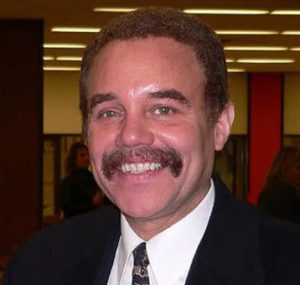 Eric Cooper, Ed.D. is the President of the National Urban Alliance for Effective Education (NUA). He served in a similar position as Executive Director for the NUA at Columbia University’s Teachers College and as Adjunct Associate Professor for 7 years. Prior to this position, he was the Vice President for Inservice Training & Telecommunications for the Simon & Schuster Education Group. He has worked in the capacities of Associate Director of Research & Program Development for the College Board, Administrative Assistant in the Office of Curriculum for the Boston Public Schools, and Director of a treatment center for emotionally disturbed students, in addition to working as a teacher, researcher, counselor, and Washington Fellow.
Eric Cooper, Ed.D. is the President of the National Urban Alliance for Effective Education (NUA). He served in a similar position as Executive Director for the NUA at Columbia University’s Teachers College and as Adjunct Associate Professor for 7 years. Prior to this position, he was the Vice President for Inservice Training & Telecommunications for the Simon & Schuster Education Group. He has worked in the capacities of Associate Director of Research & Program Development for the College Board, Administrative Assistant in the Office of Curriculum for the Boston Public Schools, and Director of a treatment center for emotionally disturbed students, in addition to working as a teacher, researcher, counselor, and Washington Fellow.
More on Eric
Previous National Urban Alliance Board Members
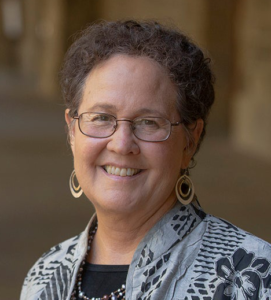 Linda Darling-Hammond, Ph.D. is the Charles E. Ducommun Professor of Education Emeritus at Stanford University where she founded the Stanford Center for Opportunity Policy in Education and served as the faculty sponsor of the Stanford Teacher Education Program, which she helped to redesign.
Linda Darling-Hammond, Ph.D. is the Charles E. Ducommun Professor of Education Emeritus at Stanford University where she founded the Stanford Center for Opportunity Policy in Education and served as the faculty sponsor of the Stanford Teacher Education Program, which she helped to redesign.
Darling-Hammond is past president of the American Educational Research Association and recipient of its awards for Distinguished Contributions to Research, Lifetime Achievement, and Research-to-Policy. She is also a member of the American Association of Arts and Sciences and of the National Academy of Education. From 1994–2001, she was executive director of the National Commission on Teaching and America’s Future, whose 1996 report What Matters Most: Teaching for America’s Future was named one of the most influential reports affecting U.S. education in that decade. In 2006, Darling-Hammond was named one of the nation’s ten most influential people affecting educational policy. She led the Obama education policy transition team in 2008 and the Biden education transition team in 2020.
